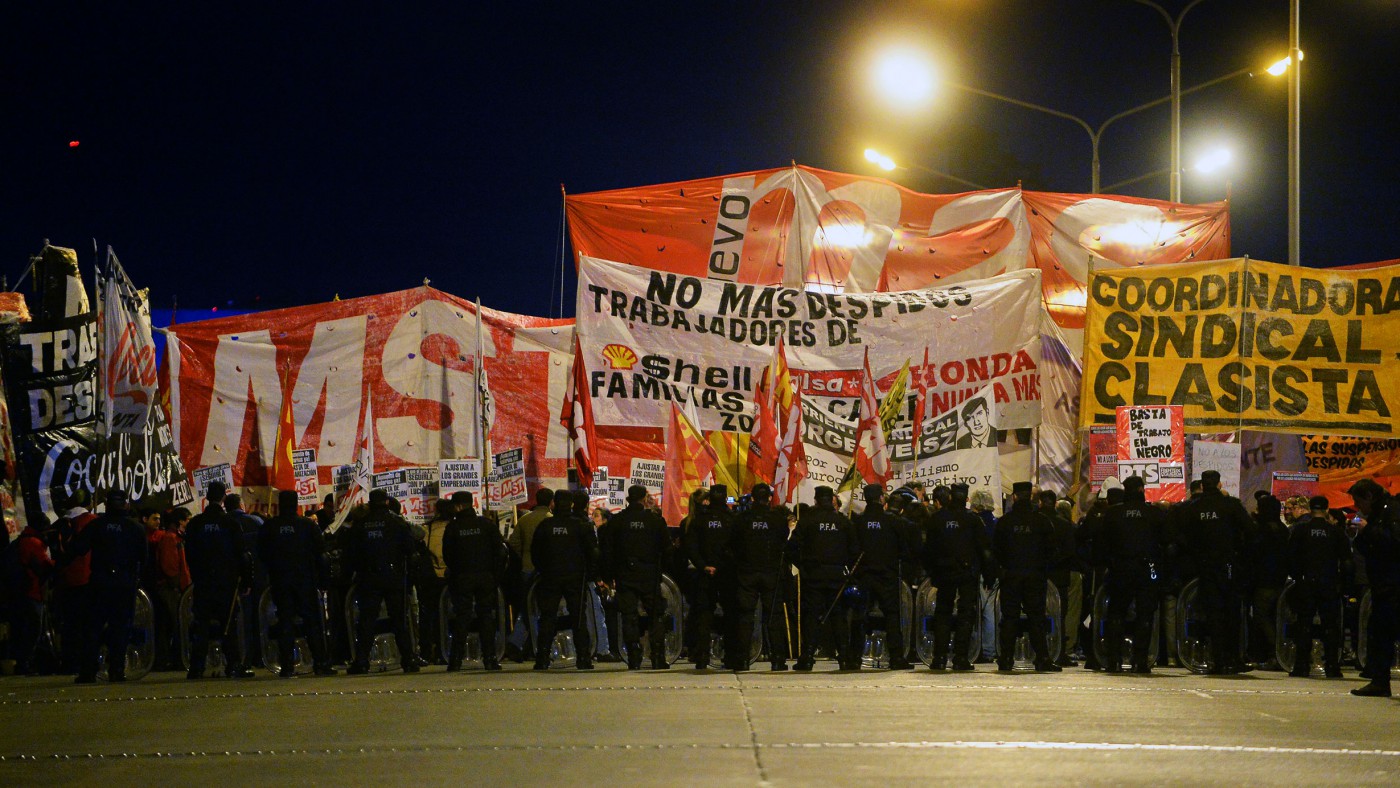In August, Argentina will start the most important electoral process since the return of democracy in 1983. Perhaps never in the recent years has there been such a clear distinction between old and the new, the demagoguery and rationality, populism and republican order.
The Kirchner couple has had three consecutive terms in office since 2003. In these twelve years they have isolated Argentina from the rest of the world and their hate mongering tactics have fractured and polarized society. Following the intellectual guidance of Ernesto Laclau (1935–2014), the Kirchners have run their administration on the basis of constant conflict and the “friend / foe” logic. Interestingly enough, Mr. Laclau owes much of his thought to Carl Schmitt, a Nazi legal theorist. In any case, the Kirchners have been some of the most advantaged pupils of Laclau and applied his neopopulist conception to the letter.
The Kirchners divided society between “the people” and different enemies – a kind of satanic anti-people who is constantly plotting to undermine the achievements of the “popular government.” For this role were selected different institutions and groups: though decimated, the political opposition was demonized. Besides, the Catholic Church, the agricultural sector, the media, the Supreme Court, and countless “corporations” and even single individuals were signaled as responsible for every setback the administration had. Needless to say, in the eyes of the government these groups were always working in close cooperation with loosely defined “foreign powers.”
The government made it also very clear that they considered republican institutions, checks and balances, and private property an obstacle for their political agenda and for the (supposedly) fulfillment of the people’s needs. Consequently, the Kirchner administration very effectively dismantled most of the constitutional restrictions to power and ruled in an autocratic way. Only very small pockets of resistance in Parliament and in the judiciary system remained.
Their populist economic agenda is erratic and unclear. The only constant was their will to increase the participation of the state in the economy. Thus, many companies were nationalized, existing taxes were raised and new ones were created, regulation and red tape exploded, and the powers of the revenue service were expanded dramatically. Financial repression is rampant and for the last four years there are several exchanges rates, including a black market one. Crony capitalists and pseudo-businessmen have thrived and find this economic environment quite cozy. Moreover, the growth of the wealth of the populist “elite” –even measured by their own official income and property declarations– has been exponential. On the contrary, the social standards of the country are stagnant or declining and the middle class is shrinking.
Under these circumstances, it is indeed encouraging that the pro republican camp has finally teamed up and formed a new electoral front named “Cambiemos” (Let’s Change). Their main figures are Mauricio Macri, the current Mayor of Buenos Aires and most likely to become presidential candidate; Ernesto Sanz, leader of the centennial Civic Radical Union; and Elisa Carrió, probably the most polemic of the group. Ms. Carrió used to have a very left wing discourse which she has moderated in recent years. Nevertheless, she was always a committed defender of the republican institutions.
Perhaps as important as who is a part of the group is who is not. Sergio Massa, currently running for president, made desperate attempts to be included in this new space. Mr. Massa was a really vociferous Cabinet Chief of Cristina Kirchner’s government (2007-2008). Later, political opportunism led him to oppose her. Peronists have long learned that is effective for them to splinter and to supply the electorate with an “alternative” when the old leadership is fading. Once the new peronist wins, all of them regroup under the new boss. Contrary to what some pundits have claimed, Mr. Massa’s rejection by “Cambiemos” was not sectarian but based on a strong anti-populist commitment.
Recently, the peronist candidate Daniel Scioli visited Cuba’s dictator Raúl Castro and announced that, if he wins, he will create the “Ministry of Popular Economy.” The campaign of the government is based on fear. They claim that a triumph of the opposition will cause an apocalypse and that poor people will lose their welfare benefits. Mr. Scioli is the governor of the province of Buenos Aires. This territory very much resembles a failed state due to crime, drug trafficking, poverty, and lawlessness. In a way it is a perfect metaphor for the peronist-populist project for the country: to manage decadence and keep poor people in check while politically profiting from them.
By absolute standards “Cambiemos” could be considered a modern social democrat party. Argentina’s political landscape has been pulled so much to the side of left-wing populism that nonetheless they are the most “libertarian” option. There is a long road ahead for truly free market policies in the country. Nevertheless, for the first time since the 2001 crisis, the peronists will have to face a real contender. Polls indicate that “Cambiemos” has a strong chance to win. This can be the necessary first step to return to the republican values and to restate the constitutional order.


